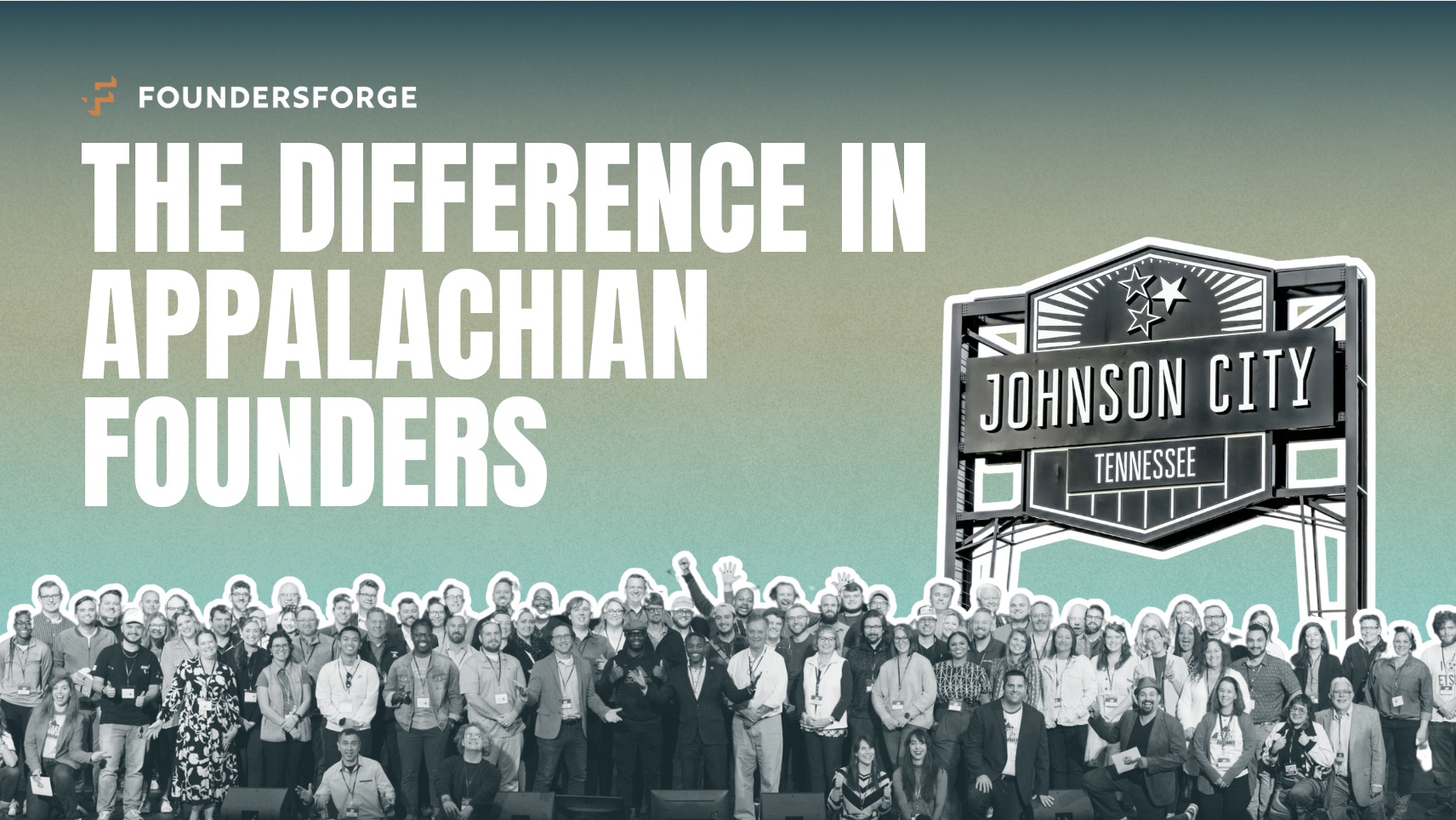
The Difference in Appalachian Founders
Watching Johnson City’s startup scene explode over the past few years and gain recognition as a hub for entrepreneurship in the southeast has been truly inspiring. It’s a testament to the founders building incredible businesses here and the network of organizations in the ecosystem working hard to support them.
Despite very little access to capital and resources, more and more founders are choosing to build at home in Appalachia. These founders continue to defy the odds again and again, proving that there is something inherently different about founders who build companies here, despite the difficulties of living in a rural region.
I make this claim proudly because I’ve witnessed innovation in some of the poorest, most rural parts of our region, and at one time, I too believed the mindset that “big things can’t happen here.” That was until my long-time mentors, Sonu Mirchandani and David Nelson, hammered that belief out of me.
That shift in perspective opened my eyes to a reality I’ve seen play out countless times since: founders here don’t build businesses the same way traditional founders do. The conditions are different, the resources are harder to find, and because of that, founders here approach entrepreneurship from an entirely different angle.
That angle is bootstrapping—and we’re damn good at it.
Qualities passed down from our grandparents over the years like resourcefulness, resiliency, and grit show up in every part of how businesses are built here. When something fails, we learn how to fix it. When something doesn’t work out, we learn to adapt. When money is tight, we get creative.
There is also a hard-headedness in a lot of Appalachian founders that is difficult to explain, but a superpower in most cases. It’s the mindset of: “I don’t care about how hard the road is ahead, I’m just going to do it anyway. And if you tell me any differently, I’ll double-down and prove you wrong.”
Sure, you could argue these qualities exist in any dedicated founder across the country. But here in Appalachia, they weren’t learned, we were born with them.
When you look back at the history of the Appalachian region, you’ll find that innovation has always lived here and still exists in the hearts of everyone who inhabit the region. If you don’t believe me, spend 30 minutes at the local farmer’s market and you’ll find the craftiest, scrappiest entrepreneurs you’ve ever met. AskGreen Llama, a local startup that got their start handing out samples in a farmer’s market booth on Saturday mornings. Now, they are in over 200+ stores across the country before raising a drop of funding.
Another differentiator between startup founders in Appalachia is their willingness to learn. Though this characteristic is not often associated with the hard-headed trait I spoke of above, it’s amazing to see them work together. Every year at the Startup Mountain Summit, it’s inspiring to see founders from all stages soak up the information given to them and apply it directly to their ventures.
Call me biased, one-sided, or naive, at this point I don’t care.
I fully believe that these differences in character, combined with the unique history of Appalachia, have created a breed of founders unlike anywhere else in the country. Too often, though, people try to measure Appalachian founders by the same yardstick used in bigger hubs. They dismiss the small wins and undervalue the very traits that make our founders exceptional.
The truth is, no ecosystem thrives by elevating a few and diminishing the rest.
At the end of the day, it won’t be individualism that keeps the Appalachian startup scene going. It will be the collective power of every Appalachian founder and supporting organization proving, once again, that big things can happen here. And if some still see that as a distraction, then so be it—because that distraction is exactly what’s driving our region forward.

